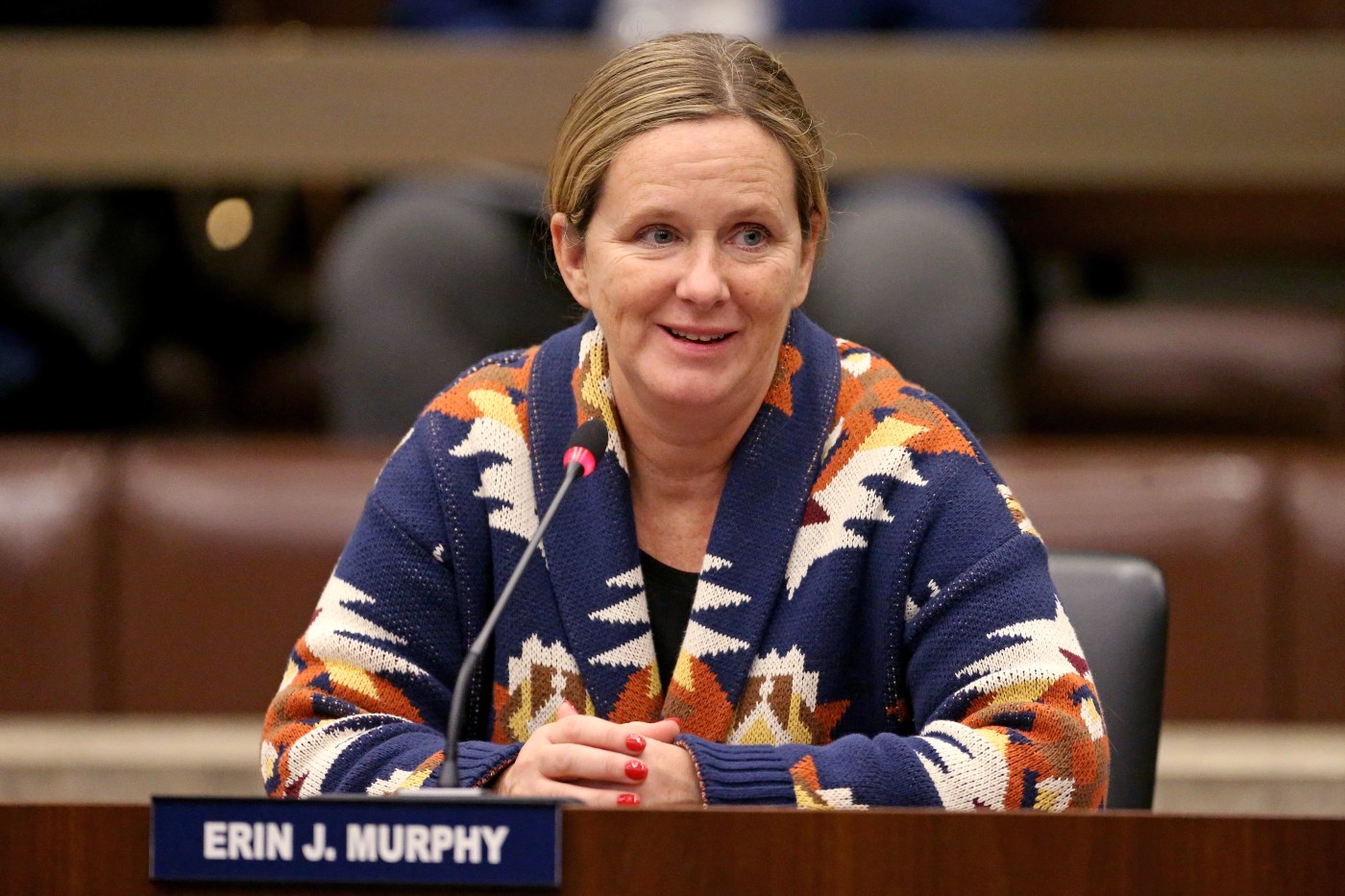
Boston City Council pushes for mayor to present ‘Plan B’ after tax plan flames out on Beacon Hill
A Boston city councilor is pressing the mayor to provide details on what steps the city will take to blunt the impact of a projected double-digit residential tax increase next year, amid revelations that her bid to raise commercial tax rates is all but dead on Beacon Hill.
Hours after Mayor Michelle Wu vowed to call every state senator to push for the bill she championed to be taken up again by the Senate, where it died by formal session’s end, City Councilor Erin Murphy introduced a measure that suggested it was time for the Wu administration to move on from the “failed” plan.
“That home rule petition has since failed at the State House, leaving uncertainty as to what, if any, measures will be implemented in its place, especially given the administration’s stance that there was no back-up plan to its attempt to change the property tax reclassification,” Murphy said.
“There must be communication with the City Council as to what the next steps the administration is looking at are and how they are planning to respond to protect residents and businesses.”
Murphy’s characterization of the bill’s status was challenged by City Council President Ruthzee Louijeune, leading to a brief tiff between the two councilors Wednesday. Murphy had voted against the mayor’s petition and Louijeune voted in favor when it came before and was approved by the Council, 8-4-1, in June.
“I know that they didn’t go forward with the omnibus bill that was at the State House, but I know that folks are still working on getting this passed,” Louijeune said. “I think it might be premature to call it failed.”
Murphy retorted by saying that was Louijeune’s “opinion,” which led the Council president to restate her view on the matter as her opinion.
“I just want to be clear that the first process that we did pass on this Council and went up to the State House did fail,” Murphy said later in the discussion. “Fail does not mean dead, but the administration is now forced to do a Plan B.”
Murphy’s order pressing the Wu administration to put forward a new plan to provide the residential tax relief the stalled legislation was seeking to achieve appeared to have tepid support from the body, in that only three councilors signed onto the measure before it was referred to the Ways and Means committee.
Councilor Ed Flynn, who opposed the mayor’s plan, signed onto Murphy’s hearing order.
“The City Council deserves answers on next steps forward now that the mayor’s tax reclassification proposal failed to pass at the State House,” Flynn told the Herald. “Boston residents and business leaders are concerned during this challenging economic period. I believe the city must cut wasteful spending, such as the $2 million allocated to the participatory budget program. While well-intended, this program is unnecessary at this time.”
The mayor’s office did not respond to a request for comment Thursday on Murphy’s hearing order, or what the city’s backup plan would look like if the city’s bid to raise commercial tax rates failed to make it through the Legislature.
Daniel Swift, a principal who specializes in property taxes at Ryan, a global tax consulting firm, has been critical of the mayor’s plan, describing it as “bad policy” and said Thursday that her administration should consider pursuing different legislative action on Beacon Hill to increase the city’s residential exemption.
Swift said that would allow the city to provide similar tax relief to what the stalled bill was seeking, without hitting businesses with higher commercial tax rates.
“It allows for a mechanism that provides the relief the city is looking for without further burdening the commercial class, which is already paying 175% of its fair share, and asking them to take on more while their values are depreciating,” Swift said. “All that you’d be doing is furthering the depreciation of those values, and leaving the residential again with a higher tax at the end of the day.”
The Council action came a day after Senate President Karen Spilka threw cold water on the city-sponsored bill’s chances in informal sessions, after the mayor made remarks that were interpreted as laying blame onto the Senate for its inaction on the bill, should residents see higher taxes.
“The Senate president has received no indication that there is sufficient support among senators for this policy proposal to move forward,” Spilka’s office said in a statement.
Related Articles
Former Boston city councilor Kendra Lara avoids jail time in 2023 crash, ordered to apologize to homeowner
Boston City Council calls for emergency declaration over Steward’s Carney Hospital closure
City Council wins First Amendment appeal case over snubbed Satanic Temple
Boston mayor, Senate president duke it out after Wu blames inaction for failed business tax bill
Boston city councilors, mayor trade jabs over police hiring push
The House had approved the bill, with the understanding that the mayor would make changes providing protections for small businesses and limiting the scope and duration of her initial proposal, should it be passed into law. It stalled in the Senate, however, which failed to take a vote by formal session’s end.
Wu downplayed the back-and-forth with Spilka during a Wednesday appearance on “Java with Jimmy,” saying that using “public quotes or statements to start fights with anyone” is not “my style” and that she meant no disrespect.
With the clock ticking before tax bills are sent out to residents in January, Wu said she planned to make her own assessment as to what support there was in the Senate for her tax bill, which she said seeks to protect homeowners from a 33% tax increase, brought on by declining commercial values. Her administration has established the year-over-year increase at 16.5%, while the larger figure would be a quarterly spike.
“We will answer anyone’s questions,” Wu said. “I will call every single state senator. We’re ready, and you know, they have a lot on their plate. I have so much respect for every person’s role in this, and so it’s not meant as disrespect or questioning anyone’s authority. This is a process that we have at the city level to protect our residents, and that’s always going to be my top priority.”

